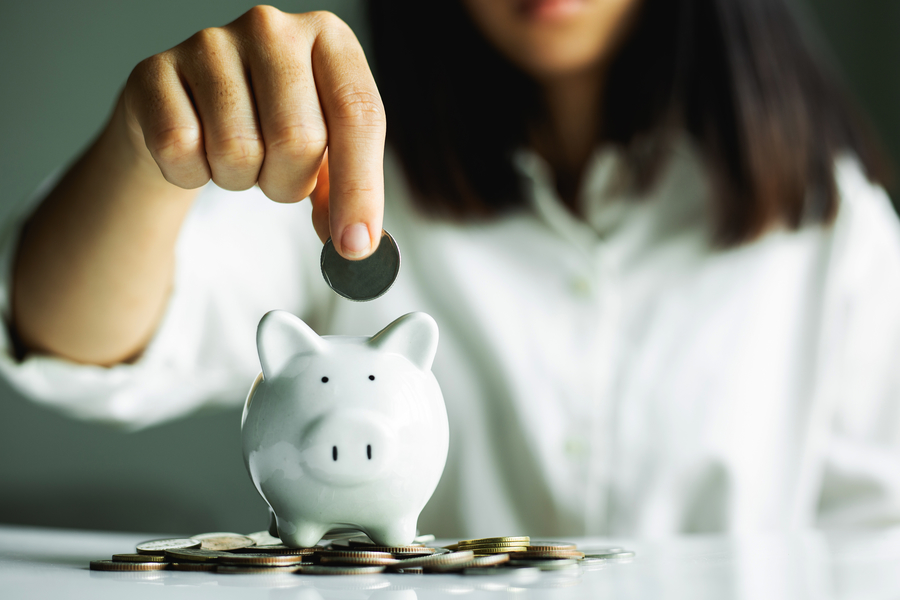I WANT
RELATED LINKS
I WANT
RELATED LINKS
RELATES LINKS
I WANT
RELATES LINKS
Services
Related Links
Use and Management of Cookies
We use cookies and other similar technologies on our website to enhance your browsing experience. For more information, please visit our Cookies Notice.
- Personal Banking
- Stories & Tips
- Grow Your Wealth
- Thais Save More Money in the New Normal
- Personal Banking
- ...
- Thais Save More Money in the New Normal
Thais Save More Money in the New Normal
06-10-2020
Since the outbreak of the COVID-19 pandemic, Thais have saved more money and increased investment. Based on data from the Deposit Protection Agency (DPA), the first half of 2020 (January – June) shows a total of 80.82 million Thai depositors in financial institutions, which increased about 1.1 million or 1.38%, and protection deposit are 14.67 trillion baht equal to 8.12% increase. Comparing to the year-end 2019, 98% represents small depositors who had less than 1 million baht in a deposit account.
Referring to the 3-year historical deposit (2017 – 2019), the amount of protection deposit was gradually rising; 12.54 trillion baht (2017), 13.02 trillion baht (2018), and 13.56 trillion baht (2019), respectively.
The high expansion rate of deposit above mentioned derived from investment fluctuation. That’s why more people have transferred their money to savings deposits so that they can save their cash for future spending.
There are two significant factors that influence Thais to keep money in savings deposits.
1.High security: Investing money in another type of asset during a crisis is risk losing, while the deposit is high security even though the compensation is low but the principle still remains.
2.Get cash promptly: For any other investment, withdrawal or selling would take time. For savings deposit, deposit or withdrawal can be made all the time and cash is available right away.

In addition to savings deposits, over the first 7 months of 2020, Thais were interested in investing in Money Market Fund. The money that flew in was regularly about 200 billion baht because that investment is low risk and the compensation is close to savings deposit.
Moreover, money flew in Flexible Bond Fund as invested in the Thai Bond Market Association (ThaiBMA) at 25-75% or 15,000 million baht. Money investment flew in Global Bond Fund at 13,000 million baht.
Thais focused on security for savings and investment over the COVID situation. On the other hand, the investors who can accept high risk, adjust port investment by shifting their money to invest in Global Bond Fund at 21,000 million baht (source: Morningstar).
During the COVID crisis, investors tend to invest more in Thai bonds as shown in new account openings. In the first half of 2020, 190,000 were new retail trading accounts, equal to 34% increase from the whole of 2019 (source: The Stock Exchange of Thailand).
The past statistics show that investors at the age of 30-40 represent the highest group who open bond trading accounts. However, in the COVID period, investors at the age of 20-30 show much more interest in opening bond trading accounts. They are curious to explore investment information and they are able to take high risk, plus, an advanced technology and swift opening of an online account.

Anyway, when considering profit of an average net asset date back 10 years ago (2010 – 2019), it was found that the interest of savings account was 0.72%, fixed account 1.88% per year, bond 2.41% per 3 years, gold 2.31% and Thai stock 11.82%.
The investment market during COVID period has highly fluctuated. Apart from being self-sufficient, setting financial goals, and accepting risk at a certain level, we should know investment tools and timing. To know and understand about factors affecting investment direction will enable us to define investment strategies in a different market environment. Besides, we can shift financial investment to other assets which generate better profit in each period of time.
More importantly, compensation from more investment is likely to come with more risks. Luckily, investors can manage risk by asset allocation, and invest in a variety of assets according to diversification.
Consequently, an asset allocation should meet individual needs to avoid risk, to be able to average the total compensation, and it is an effective way for financial management.
“Cash” is essential in a crisis period as cash can secure your life. Turn cash into savings deposits so you can withdraw them immediately when you are in need.
